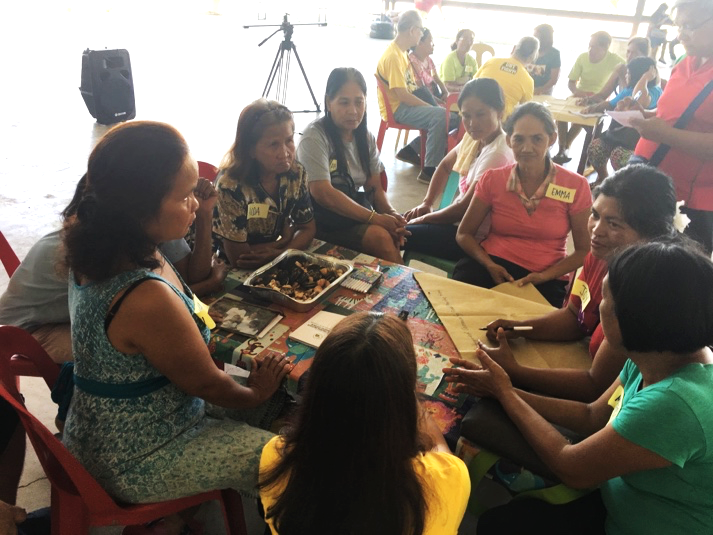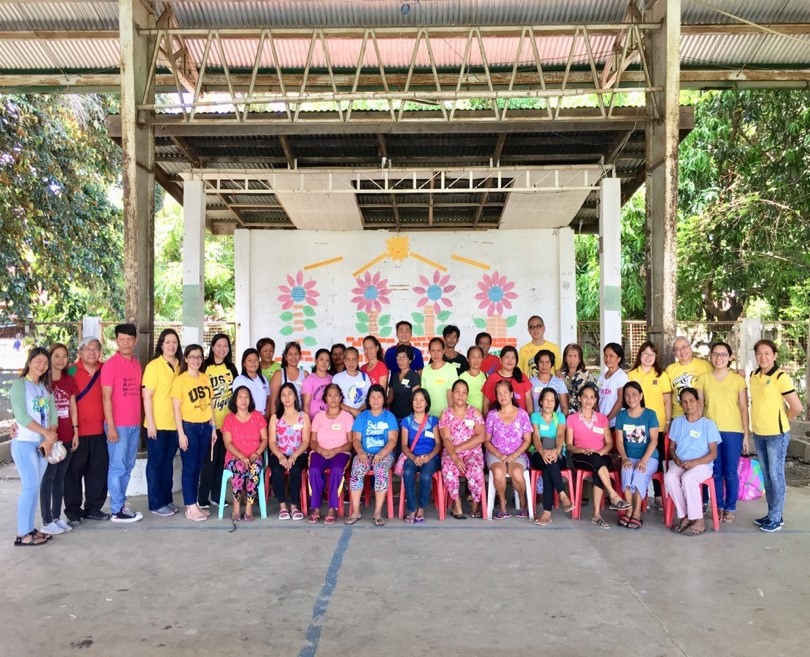The Research Center for Social Sciences and Education (RCSSED) researchers led by Asst. Prof. Gina Lontoc, PhD and her co-researchers, Prof. Camilla Vizconde, PhD and Prof. Belinda de Castro, PhD  have received research grants under the Global Challenges Research Funds (GCRF) and the Global Research Translation Awards (GRTA). Both projects are led by the UNESCO Chair team of the University of East Anglia, United Kingdom in collaboration with its partners in Malawi (University of Malawi), Nepal (CERID), Ethiopia (Bahir Dar University), and the Philippines (University of Santo Tomas), as well as UNESCO Paris and UIL Hamburg, who will host international dissemination events. The GCRF project started on September 1, 2019 and will run for ten (10) months while the GRTA project started a month later and will run for eighteen (18) months.
have received research grants under the Global Challenges Research Funds (GCRF) and the Global Research Translation Awards (GRTA). Both projects are led by the UNESCO Chair team of the University of East Anglia, United Kingdom in collaboration with its partners in Malawi (University of Malawi), Nepal (CERID), Ethiopia (Bahir Dar University), and the Philippines (University of Santo Tomas), as well as UNESCO Paris and UIL Hamburg, who will host international dissemination events. The GCRF project started on September 1, 2019 and will run for ten (10) months while the GRTA project started a month later and will run for eighteen (18) months.
 where researchers and practitioners have identified the neglect of adult literacy within the development policy framework at the national and international level as a major issue that affects financially incapable women in particular. A concept of family literacy built on indigenous learning has emerged and will be developed in relation to policy formulation and implementation within each partner country.
where researchers and practitioners have identified the neglect of adult literacy within the development policy framework at the national and international level as a major issue that affects financially incapable women in particular. A concept of family literacy built on indigenous learning has emerged and will be developed in relation to policy formulation and implementation within each partner country.
The GCRF Project: Interactive Stakeholders’ Workshops, Documentary Analysis and Ethnographic Studies
The GRTA Project: e-thnography: Exploring the potentials of family literacy and virtual ethnography in achieving food security through sustainable organic agricultural practices
The GRTA project will be based on action-oriented research on family literacy and indigenous learning in diverse contexts in the four participating countries. Stakeholder workshops at the local and national level will share what ‘family and inter-generational learning’ means  to these communities, along with the analysis of existing adult literacy policy programs. Practical guidelines for family literacy will be co-developed, which is hoped to be adapted by governments and NGO programs. Comparative analysis conducted across the four countries and outputs from the country-level workshops will form the basis of the research seminar in UIL, leading to new guidelines for family literacy. The partner university team in each country will also produce a country-specific report for dissemination through UNESCO offices.
to these communities, along with the analysis of existing adult literacy policy programs. Practical guidelines for family literacy will be co-developed, which is hoped to be adapted by governments and NGO programs. Comparative analysis conducted across the four countries and outputs from the country-level workshops will form the basis of the research seminar in UIL, leading to new guidelines for family literacy. The partner university team in each country will also produce a country-specific report for dissemination through UNESCO offices.
Under the GRTA scheme, UST RCSSED team proposed a research project which aims to study how family literacy can build on indigenous learning in order to contribute to the 2030 Sustainable Development Agenda, particularly the gender equality (SDG5), health and nutrition (SDG3), agriculture (SDG2) and education (SDG4) goals. Using mobile technology, this study explores the potentials of intergenerational learning and virtual ethnography in promoting sustainable organic agriculture and food security in poor rural communities.
This study involves students from Don Bosco Training Center (DBTC) who are enrolled in Organic Agriculture Production NC II and members of women’s organizations together with their sons and daughters, who are interested in engaging in organic agriculture and who are part of the Pantawid and Pamilyang Pilipino Program (4Ps) facilitated by the Department of Social Welfare and Development (DSWD) in Pinili, San Jose, Nueva Ecija. Through this collaboration, youth will be seen as drivers of change by participating actively in addressing pressing community issues that impact their communities.
in Pinili, San Jose, Nueva Ecija. Through this collaboration, youth will be seen as drivers of change by participating actively in addressing pressing community issues that impact their communities.
This study uses family literacy and learning as a transformative and innovative approach that works across generations, between institutions and through interdisciplinary collaboration. Furthermore, it seeks to understand more about how adults, children and young people learn and teach each other skills and knowledge in the community. This might be agricultural skills, like learning to herd animals, or new skills like using a mobile phone.
The project is linked to one of the basic premises of the policy framework for food security of FAO (Food and Agriculture Organization) of the United Nations which states that ‘in order for people to feed themselves according to their needs, they must possess the capabilities to produce their own food or they should obtain sufficient income to buy their food (FAO, 2017).’ This is related to one of the top priorities of the 2030 Agenda which considers agricultural initiatives and rural development as powerful tools to end poverty and hunger. This would not only mean a boost in crop yield but also an increase in economic opportunities in the agricultural sector.
Moreover, this project entails interdisciplinary research collaborations among colleges/faculties of the University of Santo Tomas. Colegio de San Juan de Letran, another Dominican institution, and Don Bosco Training Center, a technical vocational school, will also be involved. Lastly, local government units such as barangays, and government agencies (Department of Social Welfare and Development and the Department of Agriculture) will take part in this study.